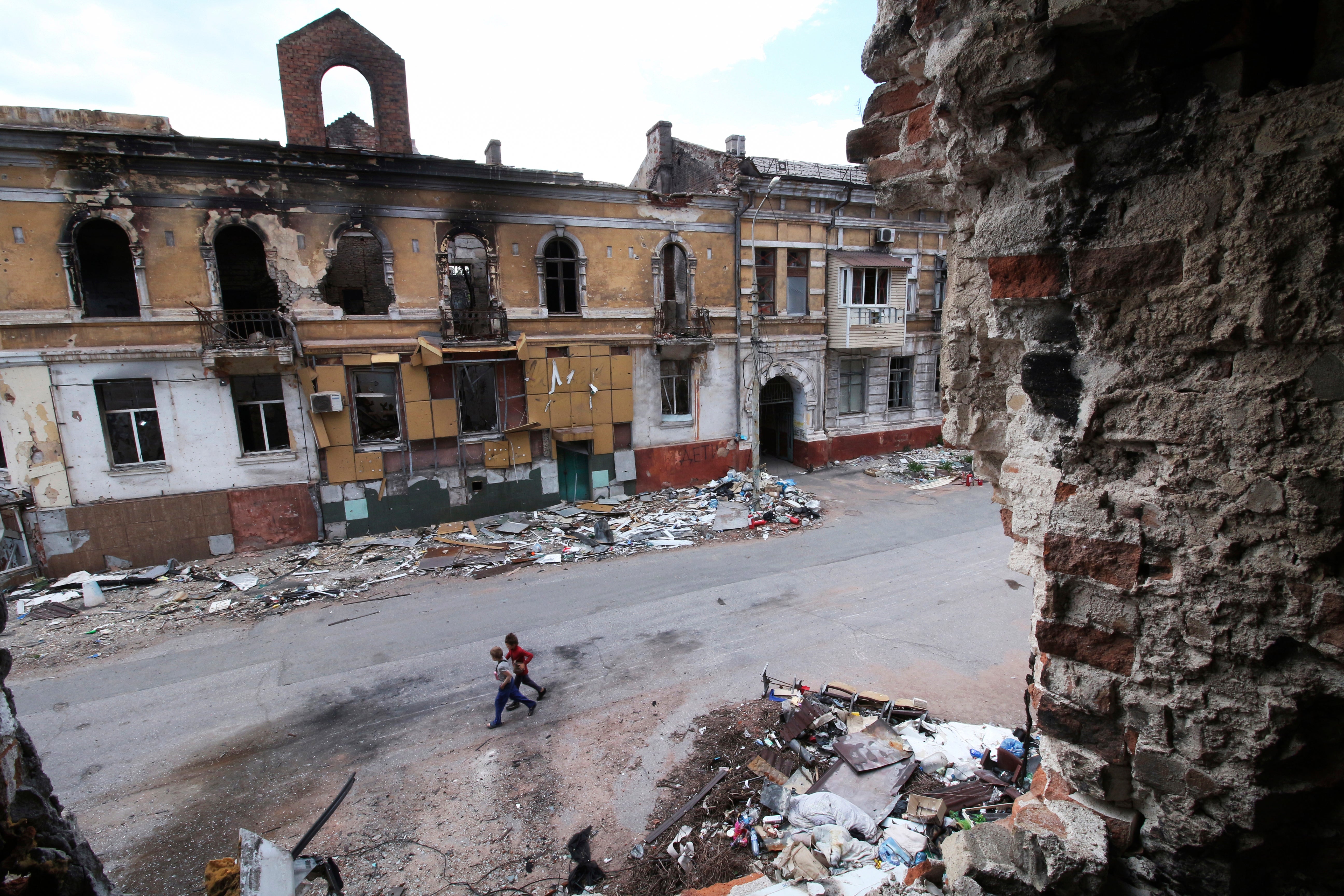It’s a sad state of affairs when it needs to be voiced, but not everything the prime minister says is terminologically challenged. His record on Ukraine is one of the few areas in which he really has got the “big calls” right.
Boris Johnson tells us that Russian forces are continuing to “chew through the ground” in eastern Ukraine, and that Vladimir Putin is making “gradual, slow … palpable progress”. So he is, and while other news stories have understandably distracted the world, the Russians have gradually brought to bear the sheer weight of numbers to the battle. At great human cost to themselves and the civilian population, they are making advances, and gaining control in the Donbas and surrounding cities such Lyman, Severodonetsk and Lysychansk.
The only tactic the Red Army knows, pulverising and laying siege to urban centres, is being deployed time and again. They are gaining ground, yet, as Ukraine’s president Volodymyr Zelensky says, they are inheriting only wastelands of their own making, depopulated and desolate.
For President Putin, however, a 19th-century imperial throwback, all that matters is territory and a line on the map. One that cuts Ukraine in two and deprives it of its industrial region and access to the Black Sea in the south. Even if parts of it, such as the Mariupol Azovstal steel plant, are reduced to moonscapes, the land mass and what’s left of the population will be under Russian occupation and control, and de facto part of Russia.
Soon, as in Crimea, Luhansk and Donetsk before, there will be a bogus “referendum” and the occupied territories will become puppet “people’s republics” or incorporated into Russia. And Mr Putin will have his victory, no matter how pyrrhic, and how much damage is done to Russia’s economy and people.
At that point Russia might well pause and offer Ukraine a ceasefire, and a de facto partition of the country. Mr Zelensky, rightly, will resist such a move, but for him to do so it needs both Ukrainian resolve and western armaments on an indefinite basis.
To keep up to speed with all the latest opinions and comment, sign up to our free weekly Voices Dispatches newsletter by clicking here
If Ukraine is to be expected to prevent further Russian incursions and push Mr Putin’s forces back to the border, that will take time and manpower. Above all, it will require the technological edge that Nato can help Ukraine deploy against Russia’s poorly disciplined troops and unreliable equipment.
More than that, the west and the wider world will have to maintain economic pressure on Russia and find ways to make sure that the Kremlin isn’t able to weaponise food as part of its campaign. That will mean Nato and a coalition of the willing will need to secure safe sea routes for exports of grain from Ukraine, which in turn needs Turkish support and cooperation. Otherwise, many in Africa and the Middle East will be left hungry by Russia holding the wheat harvest hostage, just as it is cutting gas and oil supplies to Europe.
So, to borrow a phrase, this is the end of the beginning of what may prove to be a long and frustrating war of attrition with the Kremlin. The war crimes, the vast territorial ambitions and the chaos Vladimir Putin inflicts on his neighbours makes defeat for the west and the rest of the world in such a struggle unthinkable. Ukraine must prevail.




Join our commenting forum
Join thought-provoking conversations, follow other Independent readers and see their replies
Comments